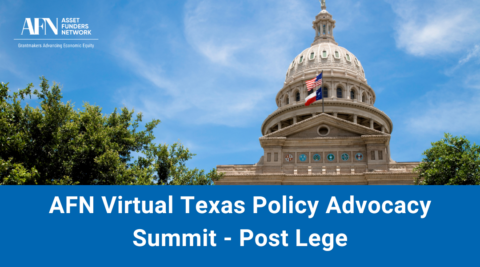From Cautious to Courageous: How Foundations Can Step up Advocacy & Invest in Change
In just the past few months, we’ve seen an unprecedented assault on reproductive rights, the heart-breaking need for stricter gun control policies, and cruel efforts to harm trans people and walk back LGBTQ+ protections. These headline-churning developments come on top of ongoing efforts to undermine climate action, criminalize poverty and further erode civil liberties. All too often, philanthropy likes to stay above the political fray. But philanthropic foundations have tremendous leverage – especially when it comes to their ability to invest in social welfare organizations pushing for racial, social, environmental and economic justice.
Private and public foundations can play an important role in advocacy by engaging in advocacy themselves and funding their grantees to advocate on critical issues. Whether your mission focuses on voting rights, police accountability, access to healthcare or any of the myriad challenges we face in bringing about a just society, it is critical that you use all available (and legally permissible) tools to enact change at the local, state and federal levels. By bringing key constituencies to the policy table, particularly those with a real stake in the outcome, we have a better chance of creating impactful systemic change.
While the tax code provides simple methods for foundations to fund 501(c)(3) public charity grantees, there are often questions about how (and when) a foundation can fund non-public charities such as 501(c)(4) social welfare organizations.
Join us as we dive deeper into 501(c)(4) advocacy and provide additional context about how to amplify the power of nonprofit advocates by investing in social welfare organizations and diverse coalitions of 501(c)(3) and (c)(4) organizations. This part two discussion will include examples of how foundations can support collaborative relationships between 501(c)(3) and 501(c)(4) groups. We’ll also hear from funders who will share how they have supported coalition work, notably efforts to boost civic engagement and advocacy among BIPOC-led organizations.
Format of the presentation is breakout discussions followed by Q&A.
Speakers
Erica Teasley Linnick, Vice President, State Infrastructure Fund
Rickke Mananzala, Executive Director, New York Foundation
Natalie Roetzel Ossenfort, Interim Program Director, Bolder Advocacy
What will we learn together?
The differences between 501(c)(3) public charities and 501(c)(4)s
How 501(c)(3)s and 501(c)(4)s can work in coalition to advance policy change and boost civic engagement
How foundations can support collaborative relationships by investing in and engaging with coalitions of 501(c)(3) and 501(c)(4) organizations
Who should attend?
All interested funders in grantmaking roles.



